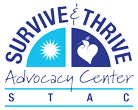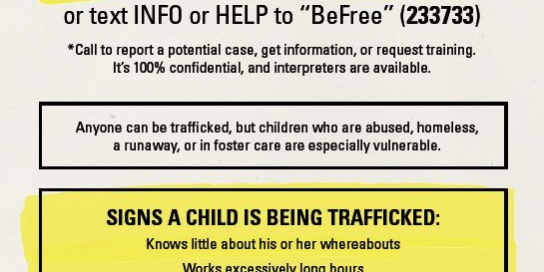Learn the ten key messages that Unicef recommends parents and caregivers share with their kids:
- Educate yourself on the issue, and learn the signs of a trafficked victim.
- Don’t accept friend requests from people you don’t know on social media. Traffickers commonly use sites like Twitter, Facebook, and Instagram to lure their victims.
- Be aware of how traffickers recruit people, and pay attention to your surroundings.
- Don’t reveal too much about yourself (i.e. your full name, address, school, or living situation) to people you don’t know, whether on your social media sites or in person, no matter how friendly the person may be.
- Never agree to meet someone you don’t know without first consulting a trusted adult (i.e. parent, teacher, guidance counselor).
- If you feel uncomfortable or are hesitant about a situation, confide in an adult who you can help you make the best choices.
- Making a decision to leave a situation or relationship where you feel unsafe or are being harmed or threatened can be hard and scary. If possible, talk to someone you trust, like a friend, family member, counselor, or youth worker.
- If you are in immediate danger or are being physically harmed, call 911 for help.
- If running away from home, try to find a safe place to go or call the runaway switchboard at 1-800-Runaway.
- If you suspect you or a friend are at risk for trafficking, call the National Human Trafficking Hotline at 888-3737-888 or text “BeFree” (233733)
Read more at unicefusa.org







